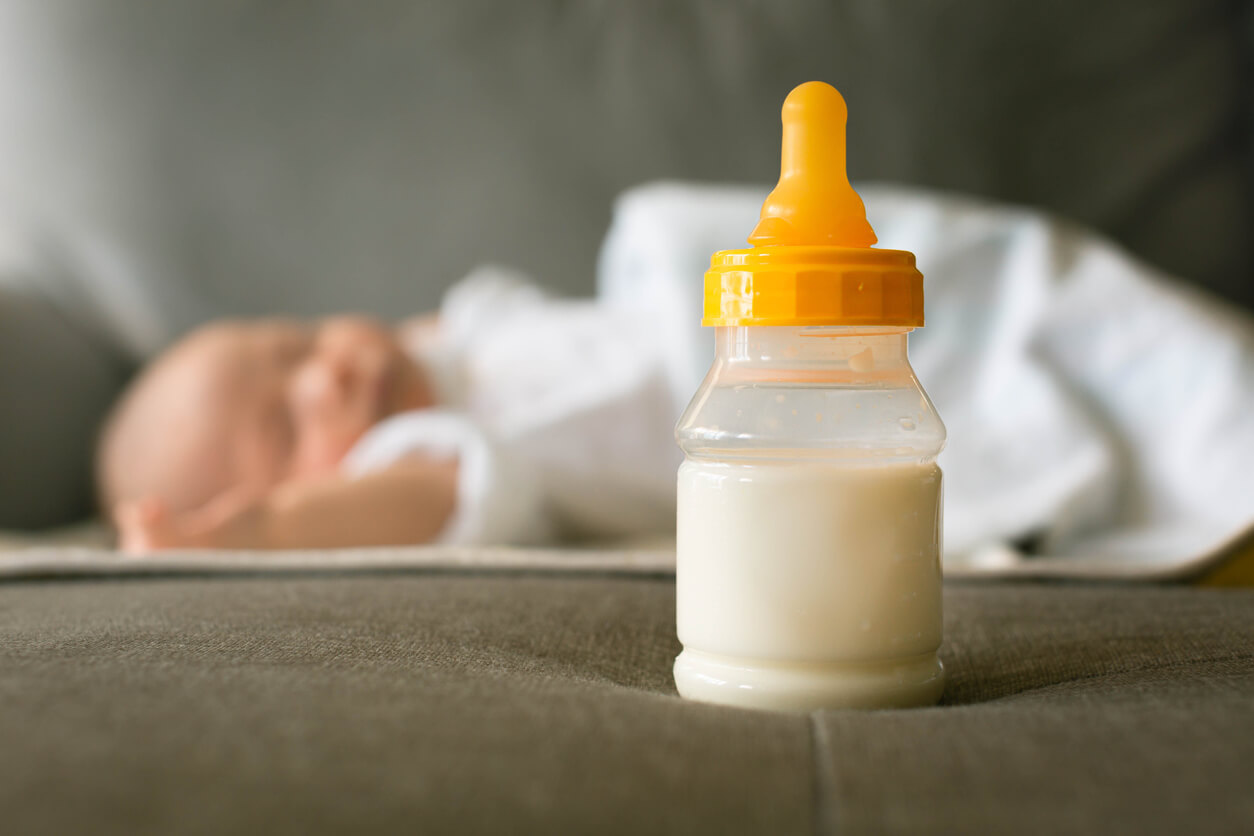Senator Demands Answers Amid Recall Over Contaminated Infant Formula
Editors carefully fact-check all Consumer Notice, LLC content for accuracy and quality.
Consumer Notice, LLC has a stringent fact-checking process. It starts with our strict sourcing guidelines.
We only gather information from credible sources. This includes peer-reviewed medical journals, reputable media outlets, government reports, court records and interviews with qualified experts.

The call for enhanced safety in the powdered infant formula market has been reignited following a recent recall announcement.
Reckitt/Mead Johnson Nutrition, a leading manufacturer of powdered baby formula, voluntarily recalled about 675,000 cans of its Nutramigen Hypoallergenic Infant formula in the U.S. because of possible Cronobacter sakazakii contamination that can be deadly to babies. The specialty formula is made for infants who have an allergy to cow’s milk.
The company has now warned 20 more countries about possible contamination. The baby formula made from the same batch was distributed worldwide to Argentina, Belgium, Belize, Canada, Colombia, Costa Rica, Dominican Republic, Ecuador, El Salvador, Guatemala, Ireland, Israel, Jamaica, Mexico, Nicaragua, Peru, Poland, Spain, United Kingdom and Venezuela, according to the FDA.
The recall has sparked criticism from at least one lawmaker who wants answers about how contamination continues to happen.
Pennsylvania Senator Calls for Action
“Over the past few years, I’ve heard from so many Pennsylvania families who just want peace of mind knowing that what they’re feeding their kids is safe,” Pennsylvania Sen. Bob Casey said about the baby formula recall. Casey sent a letter to the formula maker demanding answers about the recall.
“Parents of infants with allergies have enough on their plate without the extra burden of having to constantly check to see if their formula has been recalled, or worse, having to find another formula for their kids when a recall does happen,” Casey said in a statement. “I’m pushing for answers from Reckitt because we need accountability from formula makers that they’re doing everything in their power to make sure this never happens again.”
He wants to know if the Nutramigen production was stopped during the U.S. Food and Drug Administration inspection; what the potential impacts are on other infant formula supplies made at the same facility; if the recall will have any issue on the domestic supply of Nutramigen; and what other measures are being taken to prevent future contamination of powdered infant formula.
Casey requested the answers be submitted in writing to him by Jan. 19.
The same bacterium caused a massive baby formula shortage in 2022 and sparked many changes in the industry, including enhanced inspections, prevention strategies and regulatory action.
Some parents filed baby formula lawsuits against baby formula makers after their children were sickened in 2022 from salmonella, Cronobacter or necrotizing enterocolitis, a disease that can cause serious intestinal conditions and deaths of infants, also impacted formula-fed babies.
Bacterium Found by Israelis During Import Inspection
An exported shipment of Nutramigen Hypoallergenic Powdered Infant Formula made in Reckitt’s Zeeland, Mich. facility, was inspected by the Israeli Ministry of Health and tested positive for Cronobacter on Dec. 14, according to the FDA.
The contamination was found during routine sampling by the Israelis, who then alerted the FDA. Israel conducted a secondary test, called whole genome sequencing, to confirm the initial test and determine if the contaminant was Cronobacter sakazakii.
On Dec. 18, the FDA started a for-cause inspection at the Michigan facility and collected several samples, including environmental samples and finished product samples from the same batch that was exported to Israel.
The investigation is ongoing but testing by the American health agency and the company has been negative for Cronobacter, according to the FDA.
On Dec. 28, Israeli health officials forwarded whole-genome sequencing testing results to the FDA which confirmed Cronobacter sakazakii contamination in the exported batch. That same day, the FDA contacted Mead Johnson and recommended a recall.
The product has also been recalled in Canada.
Batch Codes of Recalled Baby Formula
Customers who purchased Nutramigen should inspect the bottom of the can to determine if the affected batch number is listed. Cans with those specific batch codes should be disposed of and not consumed.
The recalled products have a UPC Code of 300871239418 or 300871239456 and a “use by date” of Jan. 1, 2025. They include:
- ZL3FHG (12.6 oz cans)
- ZL3FMH (12.6 oz cans)
- ZL3FPE (12.6 oz cans)
- ZL3FQD (12.6 oz cans)
- ZL3FRW (19.8 oz cans)
- ZL3FXJ (12.6 oz cans)
For a refund, consumers can reach out to Reckitt/Mead Johnson Nutrition at 866-534-9986 or via email at consumer.relations@rb.com.
No Illnesses Reported
While there have been no reports of illnesses caused by the formula, the bacterium can be deadly. Cronobacter sakazakii is found naturally in the environment and is often found in dry foods like herbal teas, powdered milk and starches, according to the U.S. Centers for Disease Control and Prevention.
The pathogen can enter the manufacturing facilities or homes on hands, shoes or other contaminated surfaces.
“While infant formula firms are required to test a representative sample of their product for both Cronobacter and Salmonella species, this important verification step does not guarantee the product is free of Cronobacter,” the FDA wrote in the recall announcement. “Cronobacter contamination can occur at very low levels and is not evenly distributed throughout the product, making it difficult to detect.”
Babies who are infected with Cronobacter can develop meningitis. Symptoms of Cronobacter illness can include fever and poor feeding, excessive crying or low energy. Babies with these symptoms should be seen by a doctor immediately.
“The health and safety of infants is our highest priority,” Reckitt/Mead Johnson wrote in a statement. “All of our products undergo rigorous and industry-leading quality tests and checks to ensure that they meet or exceed all standards set by regulatory bodies, including the World Health Organization and the U.S. Food and Drug Administration. It is for this reason that we have confidence in the safety and quality of every infant formula we make.”